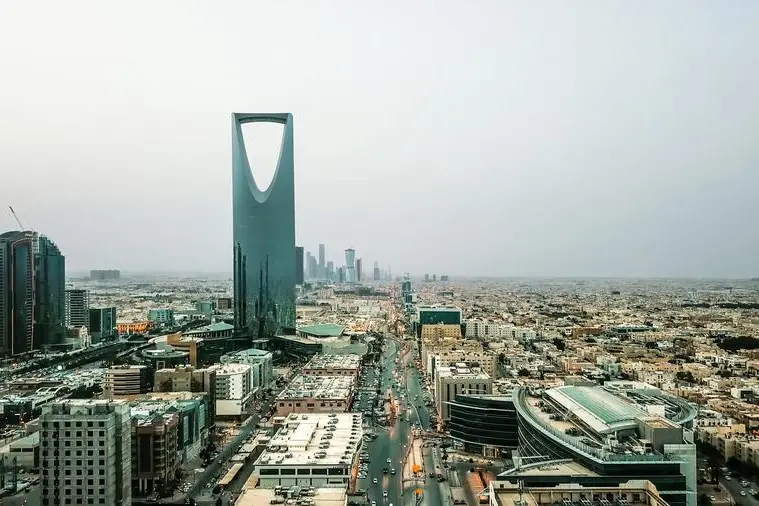PHOTO
Saudi Arabia is expected to continue to be the dominant force in Middle East ECM until year-end having contributed heavily to the region’s best first-half since 2008 with a pipeline increasingly diversifying into growth sectors.
Speaking at EFG Hermes’ annual London investor conference last week Saudi Exchange CEO Mohammed Al Rumaih predicted the country would reach 50 new listings by the end of the year, having already reached 35 achieved in the whole of 2023.
Bankers at EFG Hermes expect to be on around four Saudi deals of size, including a dual listing with the UAE, in addition to one smaller UAE deal and an Omani trade expected by the first quarter.
“It’s more on the private side, deal sizes anywhere between US$250m and US$550m. There’s one deal that’s a dual listing that’s the only one that’s crossing the US$1bn or US$1.5bn,” said Mostafa Gad, global head of investment banking at EFG Hermes. “I see it as a very healthy sign because you have more deal count, more private sector engagement, more interesting stories, growth stories as well, away from the typical yield plays the region is used to.”
This diversification has seen an increased focus on technology, with Saudi fintech Rasan marketed earlier in the year on high growth multiples followed by Capital Market Authority approval for fintech Tasheel Finance owner United International Holdings to list in the second half and anticipated IPOs in fintechs Tabby and Tamara.
Even the typically more privatisation-focused UAE has seen offerings such as education technology platform Alef and more recent plans by Delivery Hero to float its Dubai subsidiary Talabat.
Consumer businesses are also attracting attention after the Dubai listing of Spinneys earlier this year paved the way for fellow supermarket operator Lulu Group, which is expected to launch a dual Tadawul and Abu Dhabi Exchange listing before year-end.
“We’re working on a tech IPO that’s coming to the market in the coming months and we have another one for next year,” said Gad. “We’ve seen a lot of appetite in tech and I think they’re doing a fantastic job there; they’re on top of their game even when you benchmark them on global peers … Also healthcare is doing extremely well, especially in Saudi, we’ve seen a lot of demand coming there. Infrastructure is also another hot industry in Saudi.”
Evolving metrics
As the character of the pipeline changes, the approach of investors has also needed to adapt with a greater emphasis on growth metrics and away from the focus on yield and P/E typically seen on oil and gas deals.
This move is likely to be welcomed, with some bankers focused on the region expressing concern at “frothy” markets and investors driven too much by playing aftermarkets rather than studying company fundamentals.
“We’re seeing a more sophisticated approach to valuing companies than we’ve seen in the Saudi market a long time ago,” said Saud Altassan, CEO of EFG Hermes KSA. “Believe it or not a long time ago it was pretty much P/E that determined a value before IPO and we’ve come a long way since then.
"Now you have the biggest asset managers in the world who work across all markets, including the US, Europe etc, heavily focused on the Saudi market and they bring with them all of their skills and expertise on how to analyse and evaluate companies and that’s actually become very rewarding to a lot of the issuers here, especially if they have unique competitive advantages that they want to get a value for.”
While markets in Saudi Arabia and the UAE become increasingly mature, neighbouring markets are also continuing to build in frequency of issuance, with Oman’s state energy investment company OQ bringing to market another subsidiary, OQ Exploration and Production.
OQ is widely seen as following Abu Dhabi National Oil Company in offering a large stable of subsidiaries to help open its home market.
“[OQ Exploration and Production] is a big deal for Oman, US$2bn, we did OQGN which was US$750m which at the time was the largest deal Oman ever did and we had Abraj last year as well,” said Ali Khalpey, head of ECM at EFG Hermes. “It’s a very big issuance, it’s a very high-quality asset and we’re looking very keenly at that because we expect more to come out of Oman in the next couple of quarters."
Alongside National Investments Company, EFG also ran Kuwait’s first IPO in nearly two years for Beyout Investment Group earlier this year, although Kapley expects issuance from the country to remain patchy.
“I think the Kuwait macro environment has changed quite dramatically since the new emir came to power and I think there’s certainly a lot more appetite for Kuwait but it’s a bit more of a slower burn than UAE or Saudi where there’s a lot more happening in the short term.”
Accelerating change
Secondary market activity is also expected to play a growing part in deal flow following recent test cases in the form of follow-ons such as Aramco and accelerated bookbuilds like the recent BinDawood trade.
“We closed four secondary deals in the first half, two in the private sector, one with Adnoc and one with Aramco, so that’s an interesting sign,” said Gad. “We are in discussions with a couple more before the year-end.”
The size and speed of these deals has presented an opportunity for international accounts to join the register and make up for scaling back during IPOs. Local investors have been less able to respond quickly to accelerated deals, though bankers note that international long-only investors will be preferred as some of these stocks lack liquidity and could suffer from hedge fund allocations in ABBs.
Source: IFR




















